10 Benefits of a Healthcare Document Management System
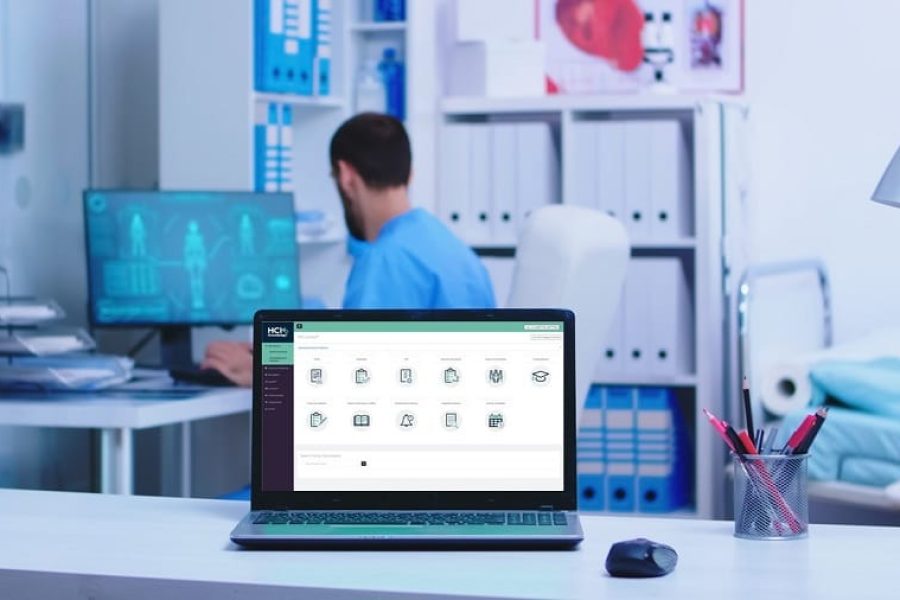
Introduction
Following the global pandemic there is now an increased focus on technology and how it can transform and improve our healthcare systems. Document management is one area which can greatly benefit from digital transformation.
As health and social care services must manage large amounts of important documents daily such as, policies, procedures, protocols, and guidelines, having easy access to this information is core to providing high-quality care. A healthcare Document Management System is a comprehensive software solution designed to streamline the document management process within the health and social care organisations. Built to enhance efficiency, security, and accessibility, the document management system revolutionises how healthcare organisations handle their vast volumes of documents.
In this blog, we will review the multiple benefits that healthcare organisations can harness through the adoption of a robust Document Management System.
1. Streamlining Information Access:
In healthcare, seamless access to accurate and up-to-date information is an essential requirement. A reliable Document Management System enables the efficient management, indexing, and organisation of key documents such as policies and procedures. This translates to instant data retrieval, optimising healthcare professionals’ ability to access critical up to date information and thus improving overall operational efficiency.
2. Elevating Patient Care:
At the core of every healthcare service lies the imperative to deliver unparalleled patient care. A Document Management Systems plays an integral role in this pursuit by providing instant access to comprehensive, best practise policies, procedures, protocols and guidelines (PPPGs). Equipped with complete information, healthcare professionals can make well-informed decisions promptly, leading to better quality care. Moreover, the Document Management System facilitates seamless information sharing among various medical professionals, fostering a culture of collaboration and well-coordinated patient care.
3. Effective Management of the Document Lifecycle:
The document lifecycle refers to the stages the document passes through from initiation to revision and update. As documents such as Policies and Procedures are essential to the delivery of safe, standardised care, it is important that they are managed in a controlled way to ensure that they are developed appropriately, managed by the correct person(s), effectively communicated to staff, monitored, and reviewed within the required timeframes. Having a document management system supports healthcare providers to effectively manage this process, as the entire document lifecycle can be managed within the document management system. Notification alerts such as acknowledgement requirements, change requests and review update reminders help to keep staff informed of when a document requires attention and helps staff to keep on top of workloads.
4. Demonstrate Regulatory Compliance:
Regulatory bodies such as the Mental Health Commission and HIQA, have set out the requirements to have robust Policies, Procedures, Protocols and Guidelines in place within health and social care services. Having a document management system not only allows you to demonstrate effective management of documents but the acknowledgement functionality also allows you to demonstrate that the PPPGs have been distributed and communicated to staff, and by staff acknowledging them it confirms they have read the policy and are aware of it. This electronic trail helps providers of care demonstrate their regulatory compliance.
5. Prioritising Data Security and Compliance:
A robust Document Management System incorporates advanced security measures such as encryption, access controls, and audit trails. These features safeguard sensitive information against unauthorised access, ensuring compliance with stringent data protection regulations like GDPR (General Data Protection Regulation).
6. Streamlined Workflows for Enhanced Productivity:
The optimisation of workflows is imperative to maximise productivity in healthcare settings. By reducing paperwork and automating repetitive tasks, a Document Management System empowers healthcare professionals to focus on their core responsibilities of patient care rather than being bogged down by manual administrative duties.
7. Data-Driven Decision-Making:
Data analytics has emerged as a powerful tool in modern healthcare. By leveraging a Document Management System, healthcare providers gain access to valuable insights into the effectiveness of their document management process. HCI’s QualSIPTM is utilised by healthcare organisations to provide oversight and data intelligence into the Quality Management System, including document management process. QualSIPTM pulls data from the Document Management System and presents it in dynamic graphs and dashboards that help healthcare providers better interpret and understand their data. Data provided includes acknowledgement workloads, documents due for review, documents overdue for review by number of days, documents sent for approval and documents activated per month etc. Using with this information, healthcare providers can identify areas for improvement and implement Quality Improvement Plans (QIPs), further enhancing patient care and optimising resource allocation.
8. Ensuring Disaster Recovery and Data Backup:
Given the large volume of critical data and documents held by healthcare services, a dependable Document Management System provides robust disaster recovery and data backup solutions. This ensures that valuable information remains protected from unforeseen events such as hardware failures or cyberattacks. Quick data restoration guarantees continuity of care even during challenging situations.
9. Fostering Cost Savings and Sustainability:
The implementation of a Document Management System can lead to substantial cost savings over time. Reduced paper usage, printing expenses, and storage overheads contribute to a more effective healthcare service, signifying an organisation’s commitment to responsible resource management.
10. Embracing Environmental Responsibility:
The transition to a paperless environment, made possible by embracing a Document Management System, reduces the carbon footprint of a healthcare service. This environmentally friendly approach aligns with sustainable practices, portraying a positive image of the organisation to patients and stakeholders alike.
How can HCI PPG LibraryTM help?
When implementing a Document Management System, it is important to choose a system that is user-friendly for staff to ensure they can easily access important documents such as Policies and Procedures.
HCI’s PPG LibraryTM is an online portal that allows for simplified access to Policies, Procedures & Guidelines. It removes the barriers to accessing policies and procedures and improves staff interaction and utilisation of the Document Management System.
When staff log into the PPG LibraryTM, they will be able to view documents by categories, specific to your organisation.
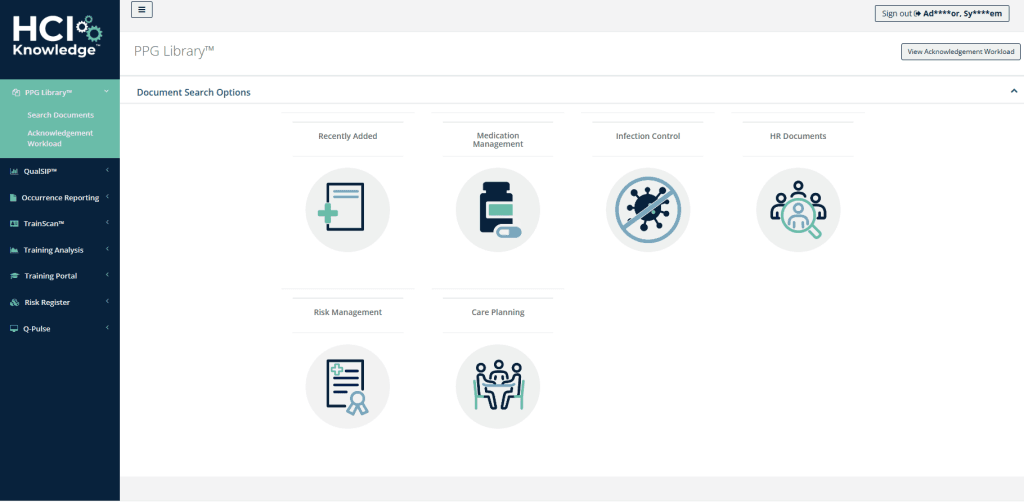
Staff can easily search for documents by viewing document categories or type a keyword in to the search bar.
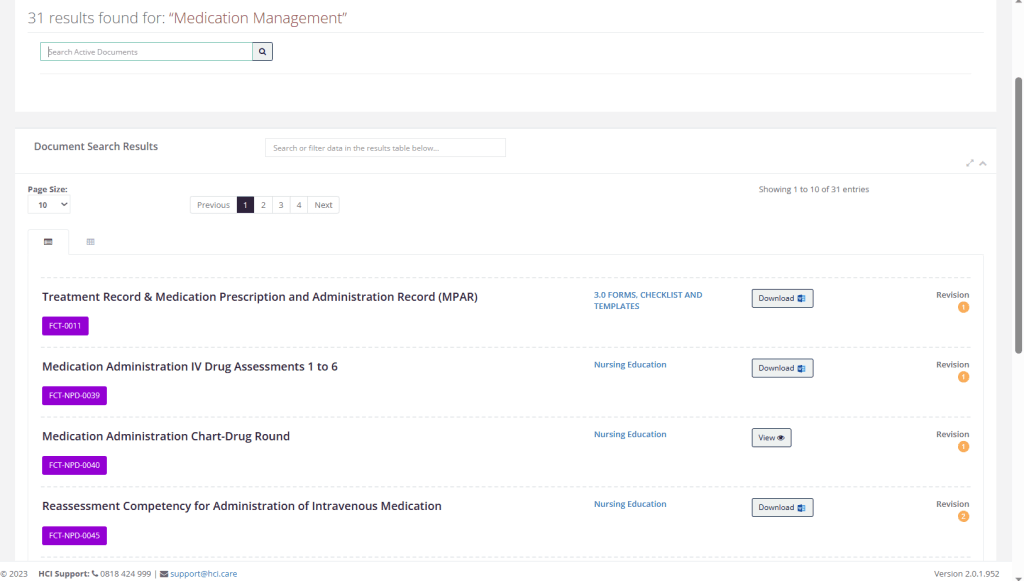
Staff also have the ability to view acknowledge workloads and acknowledge documents within the PPG LibraryTM.
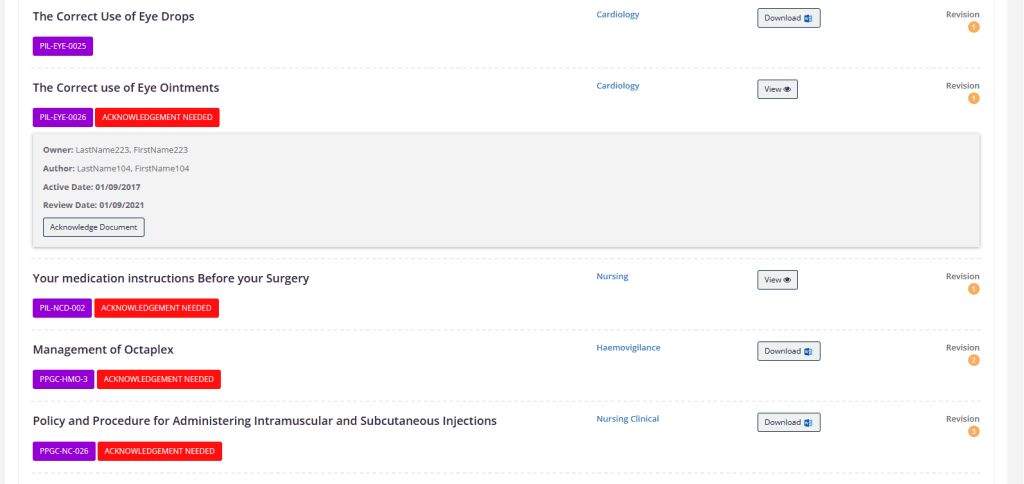
Data on Document Management can be viewed in QualSIPTM, HCI’s real time quality and safety data intelligence portal. In QualSIPTM you can view key intelligence around acknowledgement workloads, documents due for review, overdue for review, documents for activation etc. Data can be broken down by department, owner, document type and author. This allows you to pinpoint areas for improvement and make informed decisions.
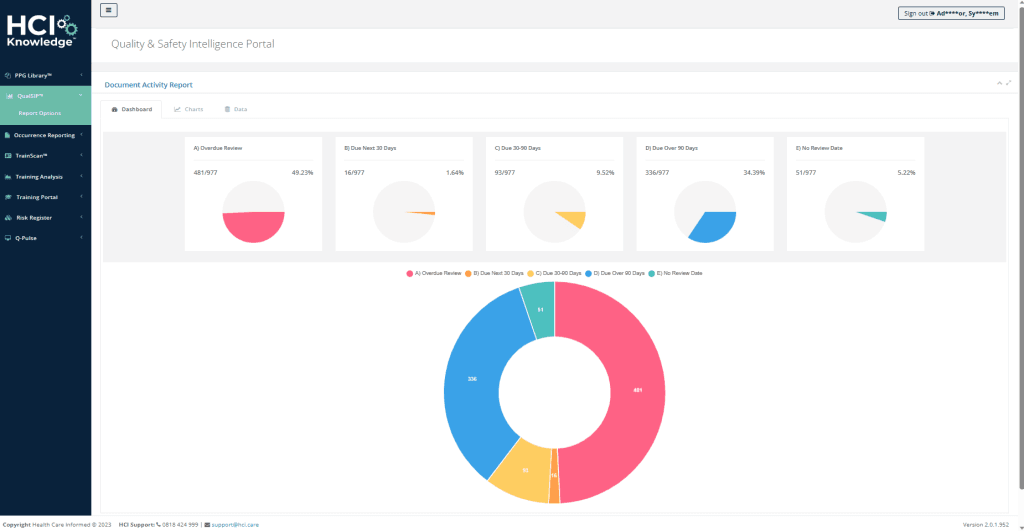
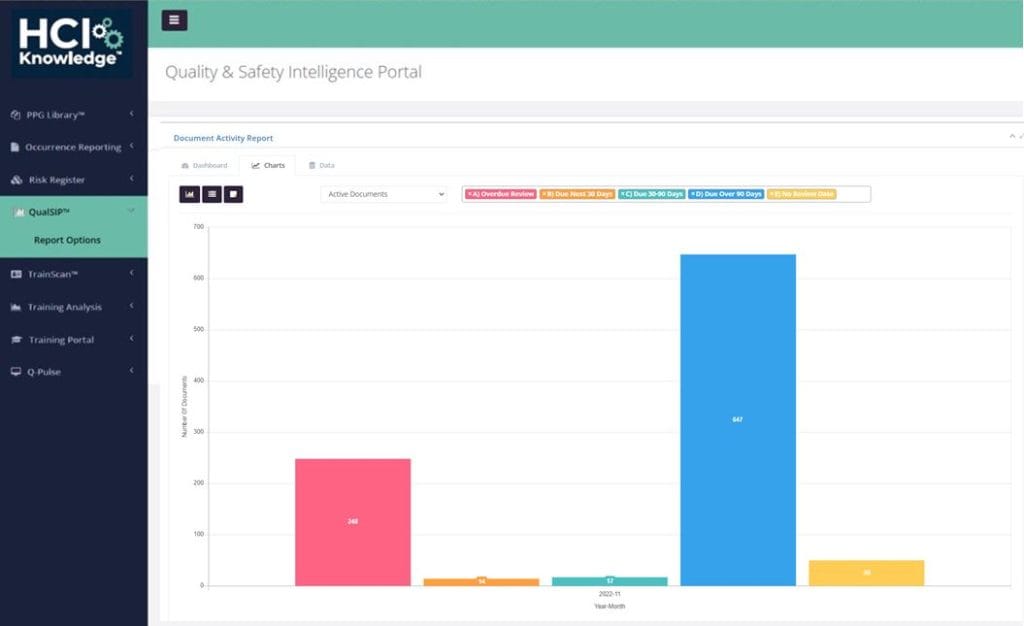
Conclusion
In conclusion, the implementation of a Document Management System in healthcare services provides an array of benefits, encompassing streamlined information access, elevated patient care, effective document lifecycle management, and regulatory compliance. Implementing a system like PPG LibraryTM, helps improve interaction with the Document Management System and makes key documents like PPPGs more accessible to staff.
Embracing this transformative technology is an incisive strategic move towards an organised, secure, and sustainable future for healthcare organisations. As the digital health continues to unfold, the full power of technology must be harnessed to elevate patient care and streamline operations.
For almost two decades, HCI have supported health and social care providers to implement Quality Management Information Systems, including Document Management Systems, which help to digitally transform their quality and safety processes. With our help you can transform your document management process and ensure that your staff have access to the most up to date information at all times.
If you would like any further information, please contact HCI on 01 629 2559 or info@hci.care.